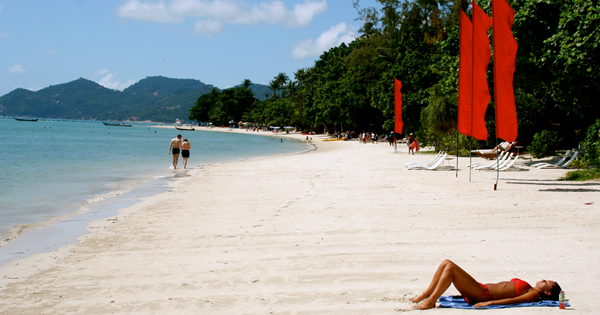Advertisement
There are so many different types of sunscreen out there. Special sunscreens for your face, sunscreens that claim to be extra light but effective, sunscreens you don't need to apply as often. That SPF 100 sunscreen must mean it’s extra protective, right? Think again.
A recent survey discovered that only 43% of people know what SPF really means. This gap in sunscreen knowledge can be damaging when it comes to buying sunscreen for the summer. TIME Magazine put together a list of the basic things you need to look for when you’re deciding which SPF you really need.
- SPF only measures UVB rays. We’re trained to look for the highest SPF, but what most people don’t know is that SPF is only a measure of the sunscreen’s protection against UVB rays. It is important to protect against UVB rays, since they’re the main cause of sunburn and skin cancer, but this leaves you unprotected against another form of sun damage: UVA rays.
- Your skin needs protection against UVA rays, too. UVA doesn’t cause sunburn, but it still puts you at risk for skin cancer, and is the culprit for skin darkening, aging, and wrinkling. Dr. Roopal Kundu, a dermatologist at the Northwestern University Feinberg School of Medicine, warned TIME that “UVA is around every day, it can penetrate through window glass.” That means you’re at risk of sun damage even if you only have your blinds open. When you’re looking for UVA protection, look for “broad spectrum” on the sunscreen label. Otherwise, you’re more than likely still exposed to UVA. Dr. Roopal recommends sunscreen with zinc oxide ingredients. Glamorous? Maybe not. But skin cancer is about as unglamorous as it gets.
- SPF 30 is as much as you need. Most dermatologists recommend an SPF of 30, which means that you can be out in the sun 30 times longer without getting sunburned than if you weren’t wearing any sunscreen. As it turns out though, the difference between SPF numbers is negligible. TIME reported that “SPF 15 filters about 93% of UVB rays; SPF 30 filters about 97% of UVB rays, and SPF 50 filters about 98% of UVB rays.” That’s only a 1% difference in filtration! Chances are, with proper application, you’ll be just fine with SPF 30.
- You need more sunscreen than you think. For the ideal effectiveness, you need “a shotglass worth” of sunscreen for your exposed areas, with reapplication every two hours.
What have we learned? Your best bet is to choose an SPF 30 sunscreen that is both broad-spectrum and water-resistant, and to apply it correctly as long as you're exposed to the sun.
Photo Copyright © 2006 Jon Rawlinson/Flickr




